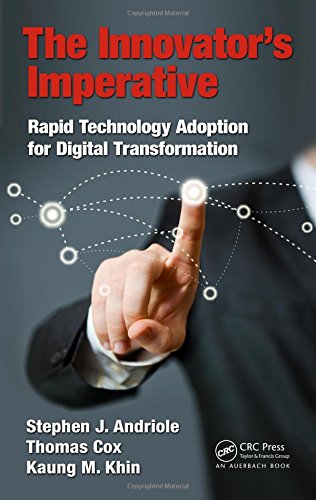

Most ebook files are in PDF format, so you can easily read them using various software such as Foxit Reader or directly on the Google Chrome browser.
Some ebook files are released by publishers in other formats such as .awz, .mobi, .epub, .fb2, etc. You may need to install specific software to read these formats on mobile/PC, such as Calibre.
Please read the tutorial at this link: https://ebookbell.com/faq
We offer FREE conversion to the popular formats you request; however, this may take some time. Therefore, right after payment, please email us, and we will try to provide the service as quickly as possible.
For some exceptional file formats or broken links (if any), please refrain from opening any disputes. Instead, email us first, and we will try to assist within a maximum of 6 hours.
EbookBell Team

4.0
76 reviewsThe pace of technological change is accelerating, hyper competition is growing, opportunities for business model disruption are exploding, and comprehensive cloud delivery is readily available. These factors challenge every aspect of business technology strategy. The Innovator’s Imperative: Rapid Technology Adoption for Digital Transformation prepares twenty-first century businesses leaders for competing and leading in this disruptive digital environment.
Five years of research conducted by the authors suggests that leading companies have all but abandoned the requirements analysis and modeling best practices of the twentieth century. Accordingly, the authors put forth the innovator’s imperative that contends:
All companies wanting to be competitive should adopt emerging and disruptive technologies as quickly as possible, and in many cases, immediately.
Technology is driving business strategy, and companies are rethinking their technology strategy, especially the governance that determines how and why technology investments are made. Based on their research the authors have developed a five-step framework for digital transformation:
The book explains each of these steps to guide business leaders in architecting digital transformation projects according to their organization’s market positions, budgets, objectives, and corporate culture.
Hyper-competitive, disruptive companies are jumping across technology adoption phases without regard to any phasing whatsoever. Companies focused on digital transformation often adopt emerging technologies immediately. They have become early adopters of technologies that can impact existing―and create whole new―business models and processes. This book examines this jump into new technologies, processes, and business models to prepare twenty-first century business leaders to make that leap.